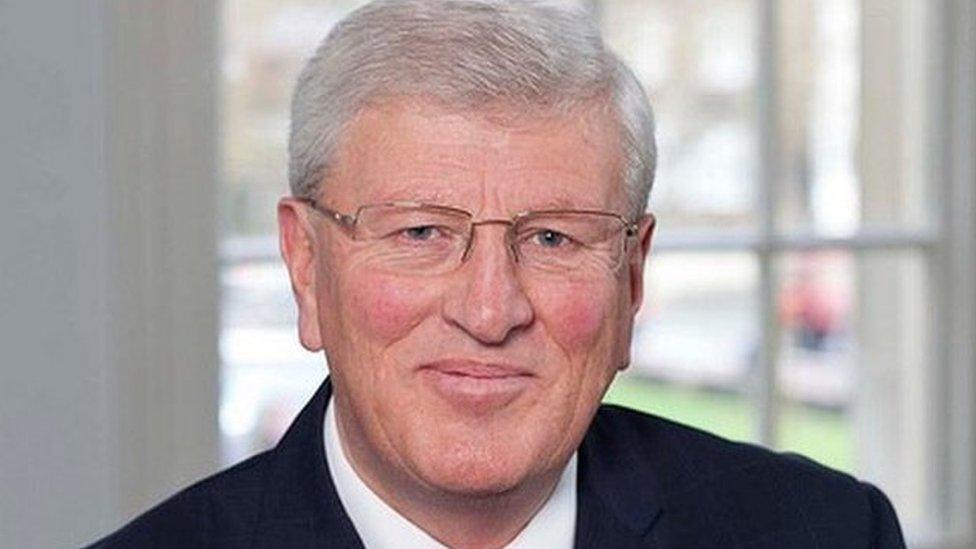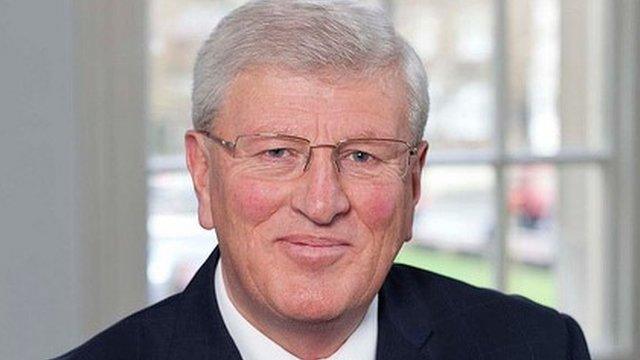Surrey County Council budget 'shows no savings details'
- Published

Council leader David Hodge said all members were "well aware" of the situation
Surrey County Council (SCC) has been criticised for a "failure to provide any detail" of savings in its budget for the coming financial year.
Opposition Residents' Association and Independent councillors said proposals showed a £46m funding gap, of which £20m was not anticipated by the Tories.
Council papers said a late government settlement meant there was not enough time to develop full efficiency plans.
Council leader David Hodge said members were "well aware" of the situation.
The Residents' Association and Independent group said the funding gap came on top of an existing "aggressive" savings plan and they feared for highways services, children's centres, libraries, waste and youth services.
Mr Hodge, a Conservative, said Surrey had cut its budget by £330m over the past five years and had £345m savings planned over the next five years but the £50m cut in the government's grant to Surrey was "bigger than anyone was expecting".
Responding to the opposition groups' claims, he said: "They are well aware we have got £345m planned for the years to come.
"We've held numerous meetings with members over the last six months."
Papers to be submitted to the budget meeting, external next Tuesday said: "In view of the late and unexpected announcement in the provisional settlement, there has not been sufficient time to develop full efficiency proposals for this report.
"Rather, service cash limits are proposed and savings and efficiency plans will be completed following proper consultation."
The report said the 2016-17 budget was only sustainable with the use of substantial council reserves, sales of assets, and an extra £20m "transitional relief" from government.
If the £20m was not provided, an emergency cabinet meeting would be held to balance the budget, which was not expected to affect the council tax precept, the report said.
SCC is proposing a 3.9% council tax increase.
The government said last month SCC's spending power was forecast to increase by 0.5% and it would have over £3.19 billion to spend between now and 2020.
- Published27 January 2016
